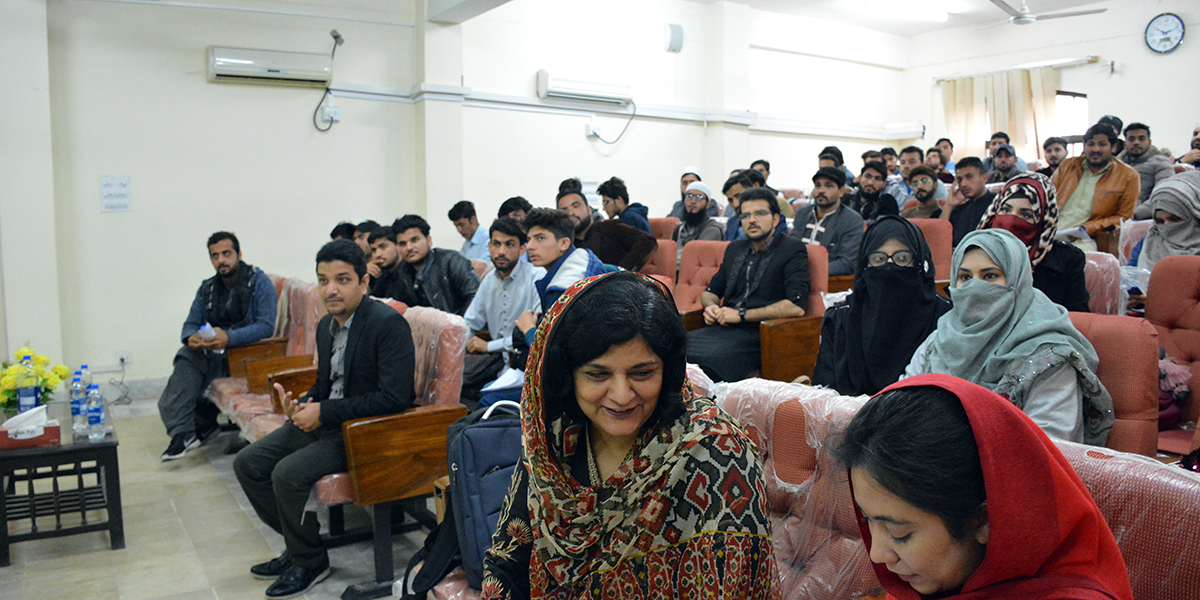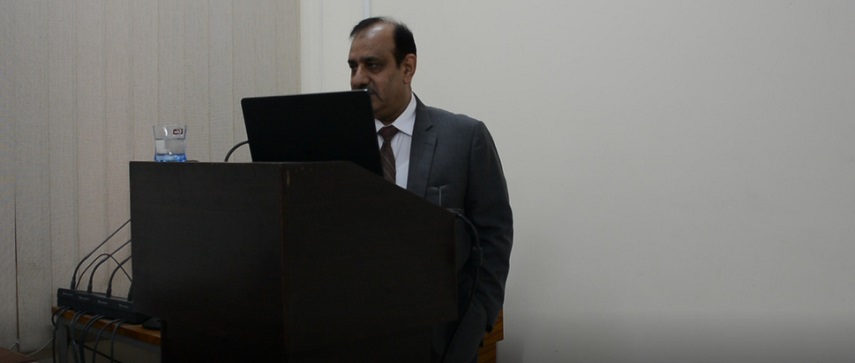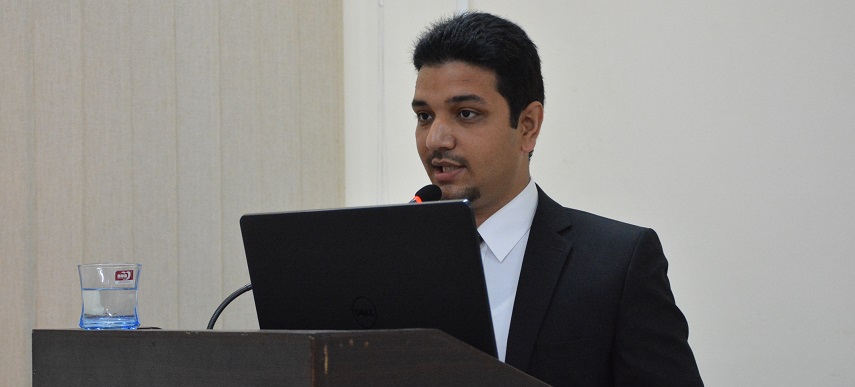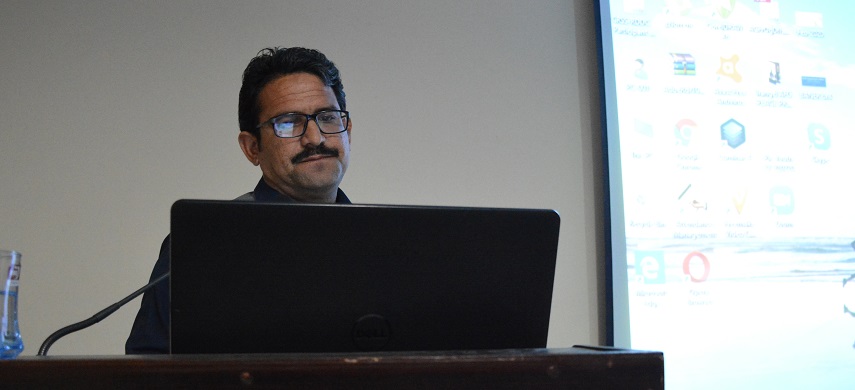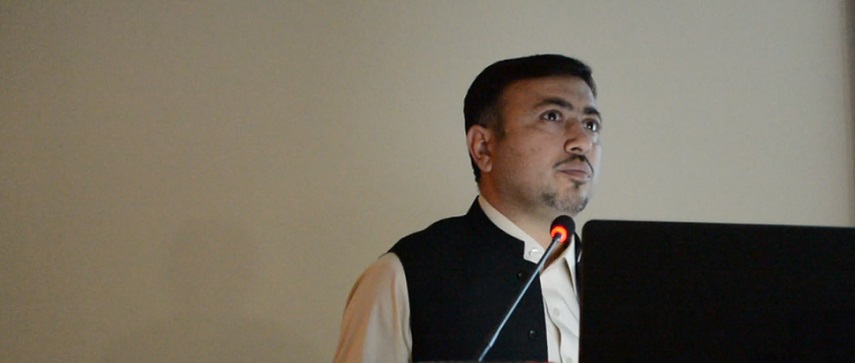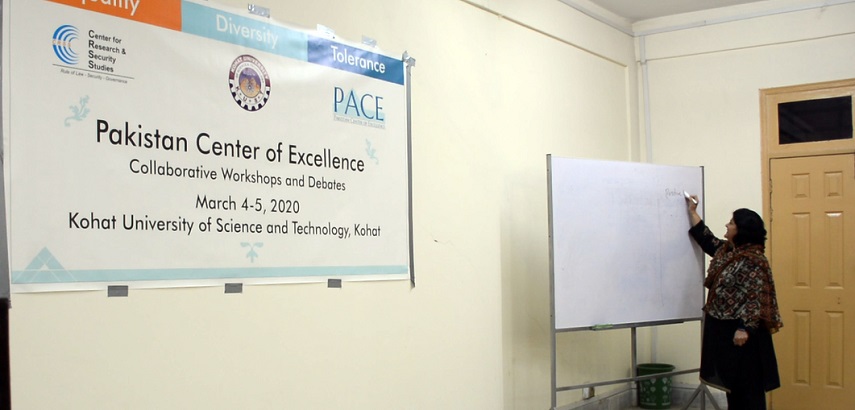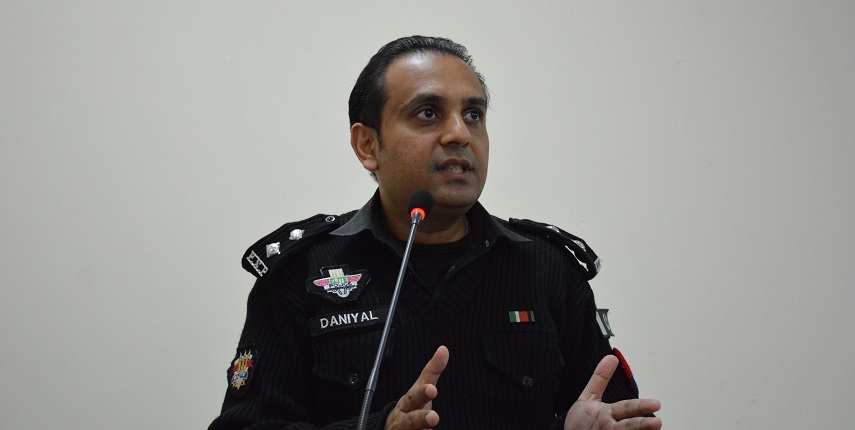The Center for Research and Security Studies (CRSS) conducted the fourteenth two-day PACE Collaborative workshops and debates for university students, on March 4-5, 2020, in Kohat. The workshop was held at Department of Sociology and Social Work, Kohat University of Science and Technology (KUST). It was conducted under the umbrella of the Pakistan Center of Excellence (PACE), a counter-radicalization, pluralistic values focused project, in collaboration with the Dutch Government.
Participants included students from KUST. Project Manager, Ms. Farhana Kanwal started off the workshop with an introductory session and welcomed the participants to the workshop. Ms. Kanwal said that PACE is a counter radicalization initiative by CRSS which was started in September, 2015 and completed its first phase in September, 2018. The core objective of PACE is to indoctrinate the habit of questioning and critical thinking among the youth of Pakistan. She added that the purpose of such activities is to bring together the youth at one platform and discuss about critical issues of multiculturalism, diversity, democracy and accountability. Youth is the shaper of future and whole objective of reaching out to them is to prepare a cadre of young people equipped with the tools of critical thinking. We believe that today’s younger generation has the ability to adopt new ideas and question preconceive narrative of intolerance. She stressed on questioning to start the process of positive transition of a society. She also stressed on including all the marginalized groups for a greater cause of peacebuilding and social cohesion. Ms. Farhana elaborated on the success and achievements of PACE in its first phase and also the objectives of PACE Evolution.
Dr. Jamil Ahmed, Vice Chancellor KUST, formally opened the session and thanked CRSS for conducting the workshop at their university. He said that students need to be engaged in extra-curricular activities. The kind of impact these workshops have on the minds of youth cannot be described in words. It is the need of the hour to educate students on constitutionalism and core values of fundamental human rights. This will enable them understand the concepts of equal citizenry and look at people from and equal lens. I congratulate and appreciate the role of CRSS in the regard.
The first formal session of the workshop was started off by Mr. Saddam Hussein, who spoke on the topic of leadership and motivation. He said that there are different styles of leadership including autocratic, visionary, affiliative, democratic, pace-setting and coaching. However, Mr. Hussein stressed that the true measure of leadership is influence, nothing more, nothing less. He added that you don’t have to be extraordinarily brilliant or the smartest one to be a leader, all it takes is courage, confidence and risk-taking. Most importantly a good leader does not have an answer for everything; he does not advice. Instead of having an answer to every question, the most effective leaders are coaches – people who can guide others to arrive at their own solutions, put them into action, and set goals. A poor leader is frequently too busy dispensing advice to fully understand the situation they’re being asked about and because they don’t know all of the issues at stake, they risk focusing on the wrong ones. Further, he discussed some fundamental laws of leadership including the law of process, the law of navigation, and law of respect and so on. He also quoted the examples about some great leaders across the globe including Prophet Muhammad (PBUH), Jinnah, Nelson Mandela, Salahuddin Ayubi, Abraham Lincoln etc. Michael Hart while praising Prophet Muhammad (PBUH) in his book “The 100: A ranking of the most influential persons in history” ranked him the most influential person in human history”. He writes about Prophet Muhammad (PBUH) in his book; “He was the only man in history who was supremely successful on both the religious and secular levels” and he also mentioned, “It is this unparalleled combination of secular and religious influence which I feel entitles Muhammad to be considered the most influential single figure in human history”. The question arises what made him the best leader ever? It was his firmness, truthfulness, leading from the front approach, respecting others, showing empathy, inclusive nature, moderation, humility, mercy and so on. Mr. Hussein, then turned towards the contemporary approach of leadership; in which emotional intelligence takes the driving seat. Emotional intelligence comprises of five key components: empathy, social skills, self-awareness, self-regulation and motivation. Emotions play an important role in personal and professional interactions. Strong leaders understand their own emotions and why they have them. They also identify and acknowledge the emotions of other people. If you can regulate your emotions, you can pretty much accomplish anything in life, added Mr. Hussein. During the session, the trainer also conducted two activities to better understand the concepts of leadership and its different aspects. Towards the end of the session, Mr. Hussein showed the participants some clips from the movie “Mandela: A Long Walk to Freedom”. The purpose of which was to inspire students and make them understand that leadership is not an overnight phenomenon; it is a struggle, a painful one, but if you are determined and consistent, nobody can stop you from realizing your dream.
Dr. Jan Alam spoke on civic engagement and social development saying that through civic engagement people work together to protect public values. He shared a definition which said that civic engagement means working to make a difference in the civic life of our communities and developing the combination of knowledge, skills, values and motivation to make that difference. It means promoting the quality of life in a community, through both political and non-political processes. Community engagement describes collaboration between institutions of higher education and their larger communities (local, regional/state, national, global) for the mutually beneficial exchange of knowledge and resources in a context of partnership and reciprocity. The fundamental elements of civic and political participation are skill-based, and therefore must be practiced in order to be learned.” The elements can be described as communicating, organizing, collective decision-making, and critical thinking.
Dr. Asif Ali spoke on the effects of terrorism and shared that the impact of terrorism can be rhythmic and fluctuating. Dr. Ali shared that common definition of terrorism refers to those acts which are intended to create fear and aimed at political or religious goals. The types of terrorism can be categorized as civil disorder, political terrorism, non-political terrorism, state terrorism, revolutionary terrorism, nationalist terrorism and religious terrorism. He spoke on the impacts of terrorism on young minds saying that they are increasingly exposed to armed conflict and directly and indirectly affects children’s physical, mental, and behavioural health. He shared some statistics of terrorism impact in Pakistan; more than 60,000 people have been killed in war against terror in Pakistan, in which children exposed to psychosocial issues and apparently lead to different levels of distress. A larger portion of the world’s orphan children existed in developing countries. The second greatest number of orphan children is around 75 million in Asia pacific reported by UNICEF (2011) in “The State of the World’s Children”. He also focused on the youth action in times of terrorism:
- It is important for young people to be aware of what is happening in their environment.
- Educate themselves about the drivers of hate speech and extremism in their social network AND about the key elements of human rights.
- Make a conscious decision not to allow purveyors of hate speech and extremism to ‘get away with it’.
- Be smart about it – don’t fall into the trap of sinking to their level.
- Humour, satire and appealing to people’s emotions are very effective tools.
Ms. Shagufta Khalique conducted a session on respect for diversity, rights and opinions. She started the session with an activity on differences and similarities among the students. The activity concluded with diversity being about differences yet accepted and respected. She said that diversity means being unique and different from others. Being different is beautiful because homogeneity is stagnant and static. She added that diversity brings out the different colours which should be celebrated. Each individual has a different personality with multiple traits and perspectives. Diversity is respected when we start developing a habit of listening to others and understand their perspective on life. Pakistan is a very diverse country with regard to ethnicities, cultures, religions, languages and genders. Diversity being present in a society is a permanent factor which cannot be altered. There are certain stereotypes regarding various ethnicities or religions which need to be challenged and changed. No trait is a permanent part of any religion, culture or ethnicity, being different is natural. Stereotyping is the worst kind of discrimination. Ms. Khalique added that some important measures taken by the current government should be appreciated as one of them is opening of Kartarpur Corridor which demonstrates the respect for religious diversity.
ASP Daniyal Ahmed spoke on the topic of rule of law. Mr. Ahmed said that if we give preference to Rule of Law over the ruler, the country will always grow and reach its full potential. He said that law is always proportionate, just, rehabilitative, appropriate, reformative, and equal for all. There should not be separate application of law to poor and elites. Everyone is equal in front of law and it should be implemented equally. Punishment must be carried out in such a manner that it rehabilitates and reforms the offender.
Ms. Farhana Kanwal closed the session with highlighting the importance of debates and critical thinking. She said that debate is a way of identifying and discussing the issues with logic and reason. She further said that an ideal society would always look beyond differences and there will be respect of rights and opinions for all with no discrimination. Ms. Kanwal also thanked the participating universities and students for their support and encouragement.

